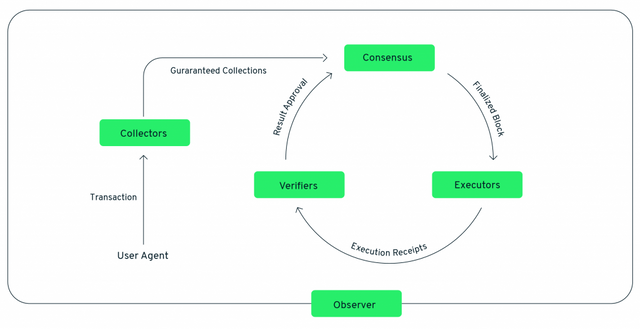
French video game company Ubisoft is an adviser on the development of Flow. This is a next generation blockchain made by blockchain game studio Dapper Labs. Ubisoft will provide Dapper Labs with 'valuable industry feedback'. Ultimately Flow needs to become an high performance ecosystem of apps and games without compromising on decentralization.
The French game publisher owns game franchises like Assassin's Creed, Far Cry and Just Dance. Last year Ubisoft joined the Blockchain Game Alliance. The collaboration between companies is an effort to share knowledge about blockchain technology in video games.
Ubisoft established a blockchain division a few months ago. It's likely that Dapper Labs and Ubisoft met each other at the Blockchain Game Alliance.
“We are eager to learn more from Dapper Labs, some of the most talented pioneers in the field of blockchain-gaming, while bringing our own experience of the gaming industry and triple-A development. As a player-centric technology, we believe blockchain can help make players true stakeholders and we can’t wait to see what we will achieve with this partnership.”
Nicolas Pouard, Blockchain Initiative Director at Ubisoft’s Strategic Innovation Lab. (Press release September 12th 2019)
In June rumors suggested that Ubisoft was working on a game build on blockchain technology. According to the French online news portal Les Echos the development was 'at an advanced stage'. Now we know Ubisoft is involved in Flow, therefore we only need to wait to hear a game title. Watch Dogs Legion is coming in March 2020. Technically that could be possible, because Flow will launch next year. But we'd put our money on a yet unannounced game.
Technical details Flow
Flow will use a Proof-of-Stake mechanism, but this next generation blockchain adds a lot more to it. For starters, the blockchain will split the consensus mechanism from the computing mechanism. This would allow more data to be put through the blockchain. As a result this would cause an increase by factor 56.
In a traditional blockchain every node stores the account balances, smart contract code etc. Each of the nodes performs all of the work associated with every transaction. Because of this these nodes require strong hardware and do lots of technical work. Flow applies decentralized participation, allowing a wide range of participants to commit to a range of technical and financial commitments. As a result Flow separates the jobs of a cryptocurrency miner or validator into five different roles: Collection, Consensus, Execution, Verification, and Observation.

There are five types of nodes. Firstly there are Consensus and Verification Nodes, which are the foundation of security in the Flow network. Everybody can participate in this part of the network, even using consumer hardware from a home connection. Secondly there are Collection and Execution Nodes, which are much more demanding, requiring dedicated server hardware in a professional data center. And finally there are Observation Nodes that can keep an eye on the network without the need to keep up with the load of traffic flowing through the network. Node operators earn rewards coming from a portion of the transaction fees.
Posted from my blog: https://www.nederob.nl/2019/09/13/ubisoft-advising-on-next-generation-blockchain/